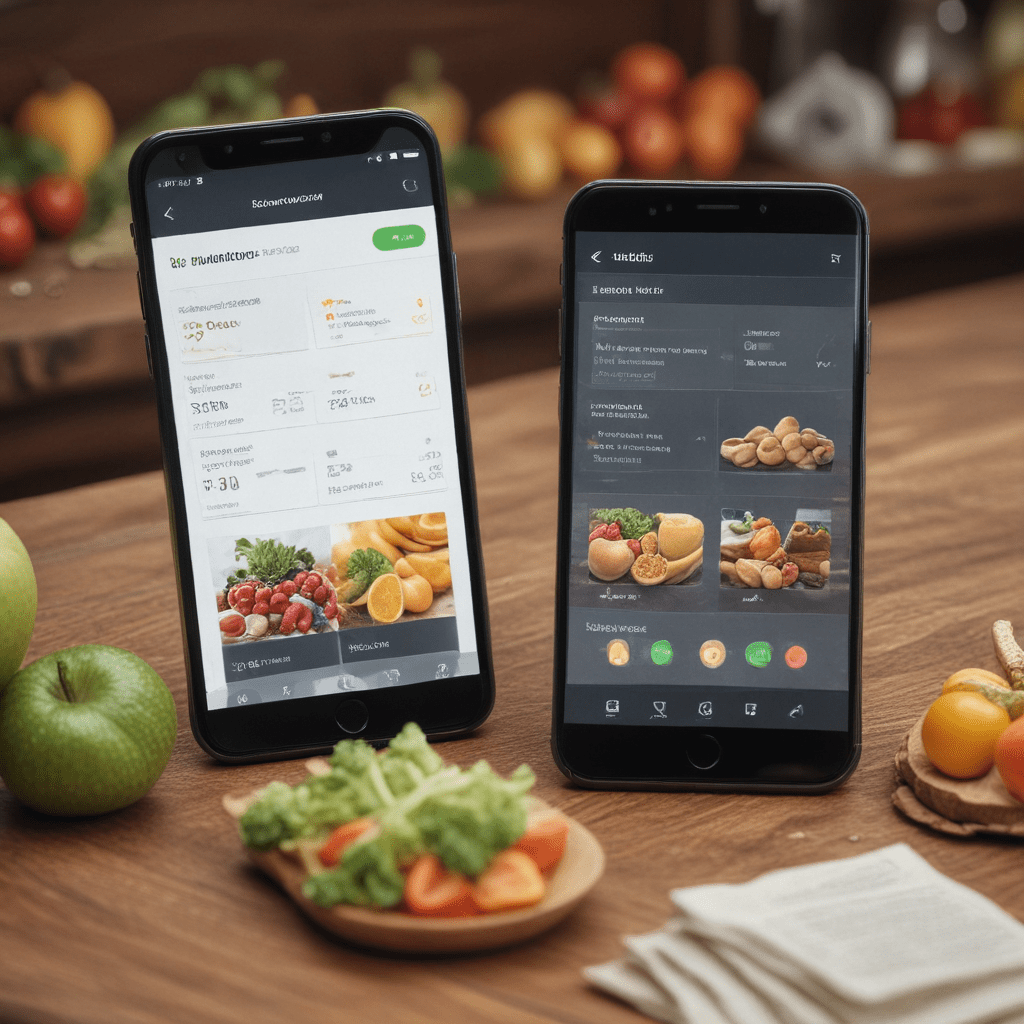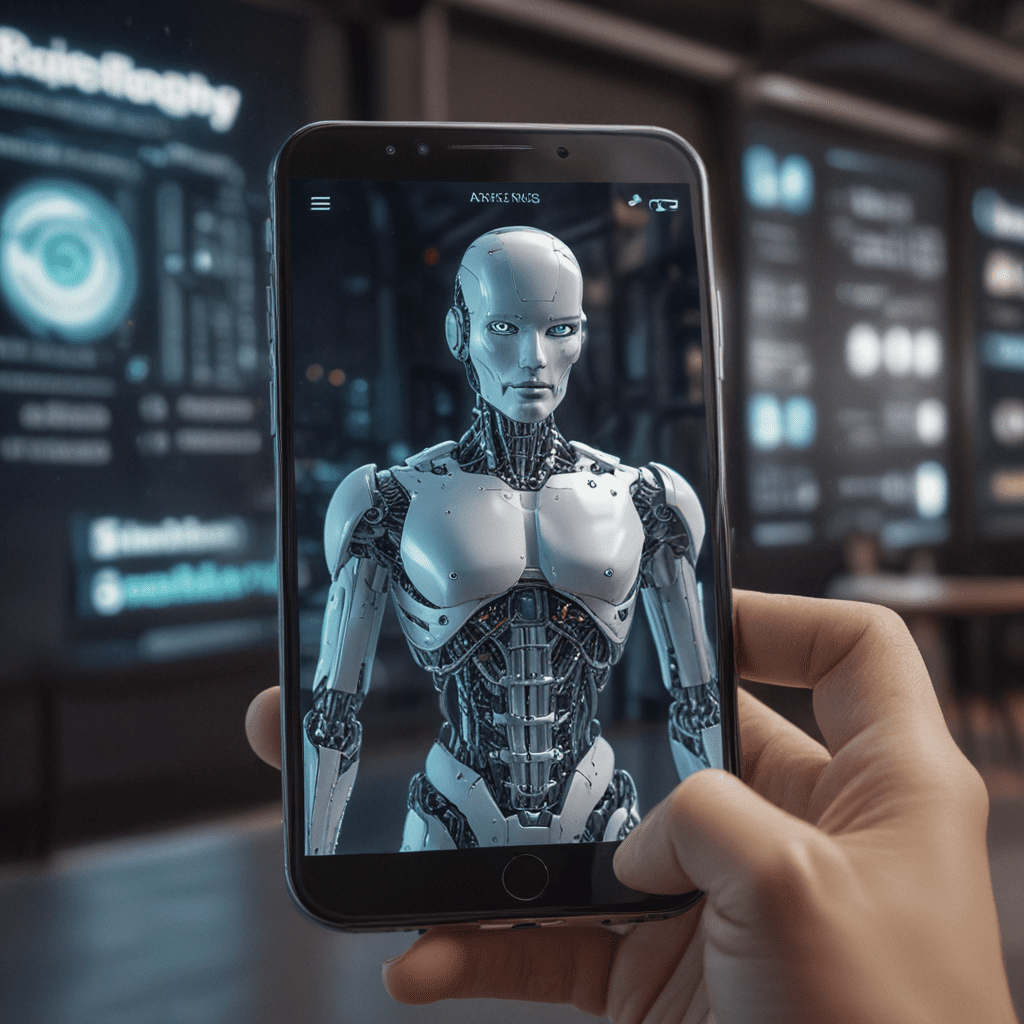
Mobile App Development for Personalized Nutrition
With the rising prevalence of chronic diseases and the growing awareness of the impact of nutrition on health, there is an increasing demand for personalized nutrition solutions. Mobile apps offer a convenient and effective platform for delivering personalized nutrition guidance to individuals based on their unique health goals, dietary preferences, and lifestyle factors.
1. Introduction
Personalized nutrition is an approach to nutrition that considers the individual's unique genetic makeup, metabolism, lifestyle, and other factors to provide tailored recommendations for optimal health. By leveraging mobile app technology, individuals can access personalized nutrition plans, track their dietary intake, and receive ongoing support from healthcare professionals or registered dietitians.
2. Understanding Personalized Nutrition
Personalized nutrition takes into account the fact that no two individuals have the same nutritional needs. Factors such as age, gender, genetics, activity level, and underlying health conditions can all influence the body's nutrient requirements. By understanding these individual variations, personalized nutrition apps can provide customized guidance that is tailored to the user's specific needs.
3. The Role of Mobile Apps in Personalized Nutrition
Mobile apps have emerged as a powerful tool for delivering personalized nutrition guidance. They offer numerous benefits, including convenience, accessibility, and affordability. Using mobile apps, individuals can:
- Access personalized nutrition plans created by registered dietitians or other qualified professionals
- Track their dietary intake, including calories, macros, and micronutrients
- Set and monitor health goals
- Receive personalized recommendations for healthy recipes and meal options
- Connect with healthcare professionals for ongoing support and guidance
4. Key Tools and Technologies for Mobile App Development
Building a mobile app for personalized nutrition requires a combination of technical expertise and knowledge of nutrition science. Key tools and technologies for mobile app development in this domain include:
- Nutrition databases: Access to comprehensive nutrition databases is essential for providing accurate and personalized nutrition recommendations.
- Machine learning and AI: Machine learning algorithms can be used to analyze user data and provide personalized recommendations. AI-powered chatbots can offer real-time support and answer user queries.
- Cloud computing: Cloud platforms provide scalability, data storage, and computing power for handling large amounts of user data and generating personalized nutrition plans.
- User interface (UI) and user experience (UX) design: Intuitive UI and UX design are crucial for ensuring a user-friendly and engaging app experience.
5. Building a Mobile App for Personalized Nutrition
Developing a mobile app for personalized nutrition requires a multidisciplinary team with expertise in nutrition science, software engineering, and user experience design. The following steps are involved in building a mobile app for personalized nutrition:
- Define the app's goals and objectives
- Conduct user research to understand the target audience
- Design the app's user interface and user experience
- Integrate with relevant nutrition databases and APIs
- Develop features for personalized nutrition plans, tracking, and recommendations
- Implement data privacy and security measures
- Test and iterate based on user feedback
6. Data Collection and Analysis for Personalized Nutrition Apps
Data collection and analysis are essential for providing personalized nutrition guidance. Mobile apps can collect data through various methods, including:
- User surveys and questionnaires
- Integration with wearable devices for tracking activity and sleep patterns
- Analysis of dietary intake through food logging or barcode scanning
- Biometric data, such as blood glucose levels or heart rate
By analyzing this data, mobile apps can identify patterns and trends, providing insights into the user's health status and nutritional needs. This data can be used to generate personalized nutrition plans, track progress, and identify areas for improvement.
7. Integration with Nutrition Tracking Tools
Integration with other nutrition tracking tools can enhance the functionality of personalized nutrition apps. By connecting to platforms such as food logging apps, fitness trackers, and recipe databases, mobile apps can provide a comprehensive view of the user's dietary and lifestyle habits. This data can be leveraged to provide tailored recommendations and support.
8. Personalized Content and User Engagement
Personalized content and user engagement strategies are crucial for maintaining app usage and achieving behavior change. Mobile apps can deliver personalized content based on the user's preferences, interests, and progress. Features such as push notifications, reminders, and gamification elements can encourage user engagement and promote adherence to personalized nutrition plans.
9. Case Studies and Best Practices
Numerous successful case studies demonstrate the effectiveness of mobile apps for personalized nutrition. Some notable examples include:
- Noom: A weight loss app that combines personalized nutrition plans with behavioral therapy and social support.
- Habit: A nutrition tracking app that provides personalized insights and recommendations based on user data.
- DayTwo: A personalized nutrition app that analyzes gut bacteria to provide tailored dietary recommendations.
These case studies showcase the potential of mobile apps to improve health outcomes through personalized nutrition.
10. The Future of Mobile App Development for Personalized Nutrition
The future of mobile app development for personalized nutrition holds exciting prospects. Advancements in technology, such as AI and machine learning, will enable apps to provide even more accurate and tailored recommendations. Integration with cutting-edge devices, such as wearable sensors and smart home appliances, will further enhance the personalization experience. As mobile apps become increasingly sophisticated, they will play a pivotal role in promoting healthy eating habits and improving overall health.
FAQs
Q: What are the benefits of using a mobile app for personalized nutrition?
A: Mobile apps offer convenience, accessibility, affordability, and tailored recommendations based on individual needs.
Q: How do mobile apps collect and analyze data for personalized nutrition?
A: Apps gather data through surveys, wearable devices, food logging, and biometric monitoring. This data is analyzed to provide insights and personalized recommendations.
Q: How can mobile apps help individuals achieve their health goals?
A: Apps provide personalized nutrition plans, track progress, and offer support and motivation to promote behavior change and improve health outcomes.

